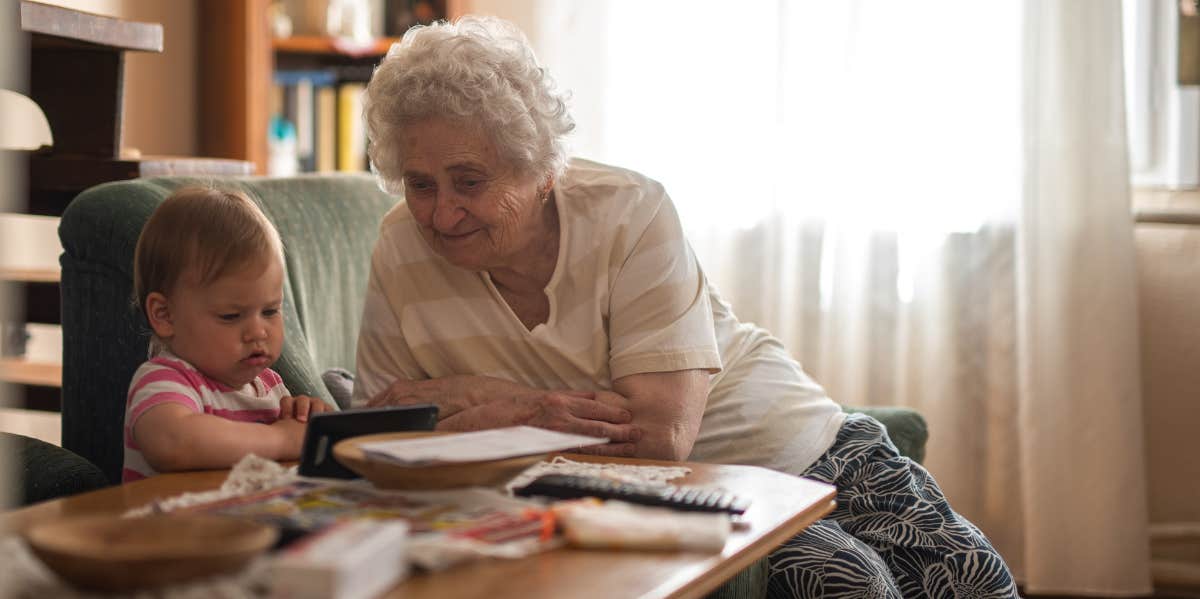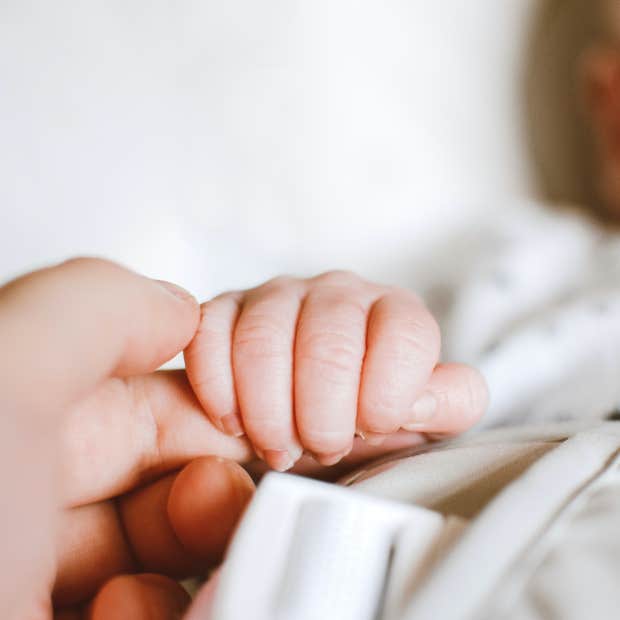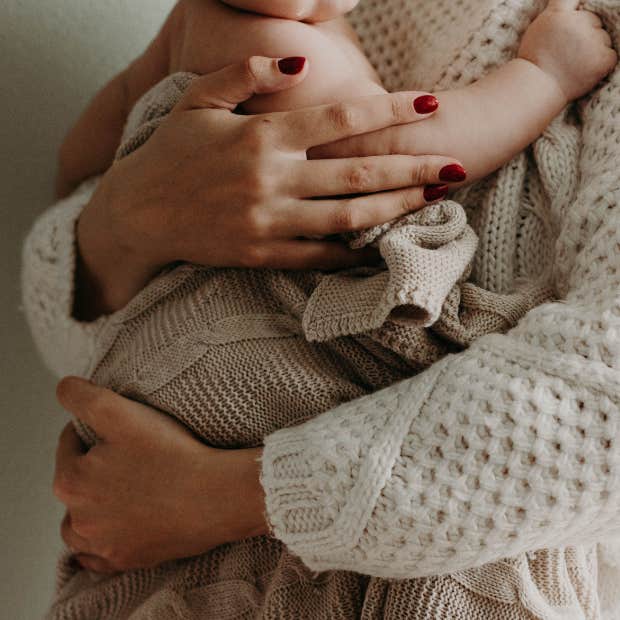Grandma Wonders If Her Parenting Style Is Too Outdated To Properly Care For Her Granddaughter Despite Trying Her Best
She explained that her son comments “very, very frequently… on how interactions I'm having with my granddaughter when he's around aren't correct."
 Marcell Palmai / Pexels
Marcell Palmai / Pexels A grandma wrote to Reddit seeking advice from younger parents on how to navigate her relationship with her son since he became a first-time parent. She asked the "r/parenting" subreddit if she was “too old” to take care of her 7-month-old granddaughter after her son criticized her interactions with his baby.
The grandma wondered if her parenting style is too outdated to care for her granddaughter despite trying her ‘absolute best.’
The 63-year-old explained that she relocated from Florida to where her son lives in order to be the full-time caregiver for her “precious new granddaughter.” She’s provided care for the baby since she was around three months old — she’s now seven months old. The grandma explained that she goes to her son and daughter-in-law’s house during the work week from 7 am to 5 pm and usually stays over one night on weekends “so they can go out and… sleep in the next morning while I get up with the baby.” She also does laundry and light housekeeping daily.
“I'm perfectly happy with this arrangement,” the grandma stated, then opened up about struggling with her son over their differing parenting styles. “My son is obsessed with reading every book on how to successfully raise a secure child, and every other book out there on raising children in current times,” she said. “I've read one of the books he required me to, and try my absolute best to follow the recommendations while with my granddaughter. Do I always get it right? Absolutely not, but I try.”
The grandma asked if she was ‘too old to be doing this,’ and wondered if her granddaughter would be ‘better off in the long-term’ with a younger caregiver.
She explained that her son comments “very, very frequently… on how interactions I'm having with my granddaughter when he's around aren't correct. He'll then proceed to tell me why, and what I should be doing.”
She ended her post by stating, “Thoughts from younger parents would be greatly appreciated.”
 Photo : Lisa Fotios / Pexels
Photo : Lisa Fotios / Pexels
One person asked about the specifics of the interactions her son took issue with. The grandma responded in the comment section, explaining that he criticized her way of “responding to my granddaughters’ cries exactly as the book describes, making direct eye contact with her, mimicking her sounds [and] facial expressions, knowing [and] interpreting her every cry [and] facial expression.”
“I try, but it's a lot!” She concluded.
Another person praised her as “a wonderful and amazing grandparent,” and questioned whether her son’s rigid reactions were the result of his own emotional state and not the quality of her care. They said, “I think that your son sounds overwhelmed by being a new parent and is coming across as overly controlling because of anxiety or something else that he's feeling.”
Someone else offered “broad advice,” explaining that they’re a Ph.D. candidate focusing on “how primary caregivers interact with their infant to support infant development and secure attachment.”
'A major key to helping an infant develop a secure attachment bond is being sensitive to their cues,' they stated.
They explained the importance of noticing a baby’s cues — whether the baby is hungry, tired, or in need of stimulation, and then responding “within a reasonable timeframe.”
They continued, saying that “A 7-month-old has some self-soothing abilities, but still very much relies on their caregiver to help them regulate,” recommending that she offer a supportive response to address the baby’s needs.
“Babies are just like adults in that, ultimately, they want to feel emotionally validated,” they explained. When caregivers respond positively to babies, “They will feel validated and encouraged to explore even more with the support of their caregiver [which] over time, will slowly encourage the development of a secure attachment bond.”
They offered sage guidance on parenting styles, stating, “No one is able to be the ‘ideal’ caregiver 100% of the time.”
“These types of interactions come more naturally to some compared to others,” they continued. “It seems your son may have too high of expectations,” while clarifying that “these are not new parenting concepts, it’s just that parents these days are more aware of their importance.”
“The fact that you’re asking these questions shows you’re a dedicated, loving grandma. I’m sure you’re doing a great job!” They concluded. The grateful grandma thanked the PhD candidate for their “spot-on” reply and emphasized just how deeply she — and her son — love the baby.
 Photo: Kristina Paukshtite / Pexels
Photo: Kristina Paukshtite / Pexels
“I honestly do try my best to provide my granddaughter all you mentioned, but it's not 100% of the time,” she said. “I do feel, though, she absolutely knows I'm there for her. That I'll never let her feel unprotected, unloved or unimportant.”
“I want, as much as my son does, for her to grow into adulthood as a secure, confident, kind, loving, strong woman,” she continued. “I may not be around to see it when she's older, but I want to know I was a part of her positive development.”
The grandma expressed her heartfelt desire to be present and help shape the person her granddaughter will grow up to be, a sentiment that holds so much weight. There are bound to be inevitable differences in the ways that caregivers interact with the babies in their lives. When love and compassion are the pillars of those interactions, babies know that they’re secure.
Alexandra Blogier is a writer on YourTango's news and entertainment team. She covers parenting issues, pop culture analysis and all things to do with the entertainment industry.
